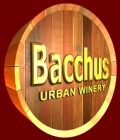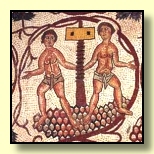|
|
|||||||||||||||||||||||||||||||||||||||||||||||||||||||||||||||||||||||||||||||||||||||||||


Napa Valley (California's vineyard region) has replaced Disneyland as the state's number one trourist destination.

|
REGULATIONS & SALES
What you should know about making wine and beer in Canada.
See: PROVINCIAL REGULATIONS
Source: Statistics Canada. Sales of Alcoholic Beverages (2015-2016).
ALSO SEE: Federal Requirements and Liquor Licenses in Canada Also known as Ferment-on-Premises, UBrews (U-Brews) and UVins (U-Vins) are businesses that provide their customers with the ingredients, equipment and advice they need to make their own beer, wine, cider or coolers on-site. Once it's made, UBrew and UVin customers must take their liquor away to be used for their own private consumption. It cannot be sold to others. In Canada, liquor licences are issued by the legal authority of each province to allow an individual or business to manufacture or sell alcoholic beverages. Usually several types of liquor licences are available within each province, with corresponding regulations. Licence holders must strictly follow all the terms and rules to avoid suspension, fines for non-compliance or revocation.
BRITISH COLUMBIA In British Columbia, all UBrews and UVins are required to have a license. Anyone holding a UBrew/UVin licence may choose to specialize in just beer or just wine, or can offer both. Businesses that sell kits, juices or other ingredients for customers to make beer or wine at home, do not need a UBrew/UVin licence.
Under present regulations, adults in Alberta are able to make up to 460 litres of wine, cider or beer in their residence for personal consumption. No provincial markup or federal excise duty is levied on this product.
Saskatchewan businesses can obtain a permit to offer U-Brew and U-Vin services in Saskatchewan. These permitted businesses can offer supplies, space, equipment and expertise for customers who want to make wine and beer for personal consumption.
MANITOBA The change was made possible by the new Liquor and Gaming Control Act, which came into effect April 1, 2014, as part of the Manitoba government's ongoing modernization of liquor laws that will offer businesses increased opportunities to respond to evolving consumer demands, eliminate red tape and improve public safety.
ONTARIO It is essential that the product be for “personal use”. Ferment on premise facilities cannot offer for sale, keep for sale, produce for sale or sell wine or beer. In addition, the regulations do not allow the exchange or giving of alcohol on the premises. The Liquor Licence Act and regulations set out the specific roles and responsibilities that must be exercised by a licensee (and his/her employees or agents) as part of the overall process, as well as the steps that a customer must take to produce the beer or wine.
The province of Quebec has its own special laws concerning selling liquor and acquiring a liquor licence. See: Application for a liquor permit and Act respecting liquor permits
PRINCE EDWARD ISLAND
NOVA SCOTIA
NEW BRUNSWICK
The government has developed this handbook as a reference to assist the licensee. Please note that it is intended to be used solely as a learning and teaching aid for you and your staff and it does not replace the legislative authority of the Liquor Control Act or Regulations.
YUKON
NORTHWEST TERRITORIES
NUNAVUT
not responsible for the content of those sites. Although we try to ensure the accuracy of all information presented on this site, you should confirm all information before making any decisions based upon it. 
Copyright © 2007-2018 WWW.BACCHUSURBANWINERY.COM All rights reserved.
|
||||||||||||||||||||||||||||||||||||||||||||||||||||||||||||||||||||||||||||||||||||||||||
|
|
|||||||||||||||||||||||||||||||||||||||||||||||||||||||||||||||||||||||||||||||||||||||||||
